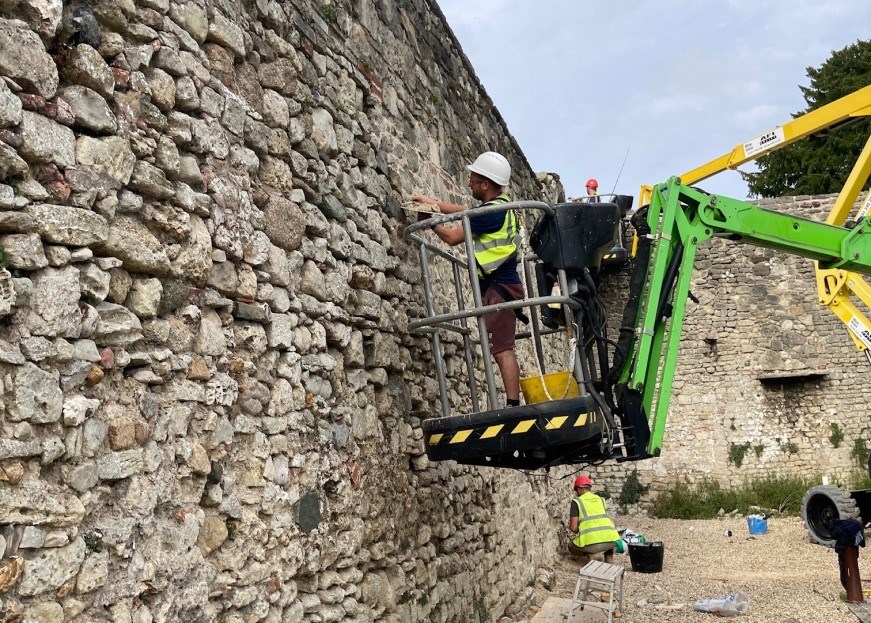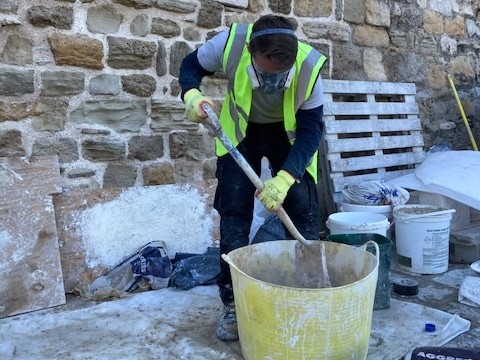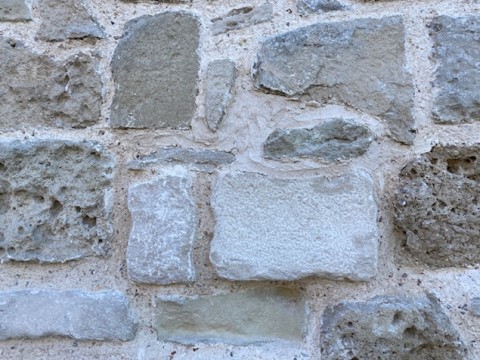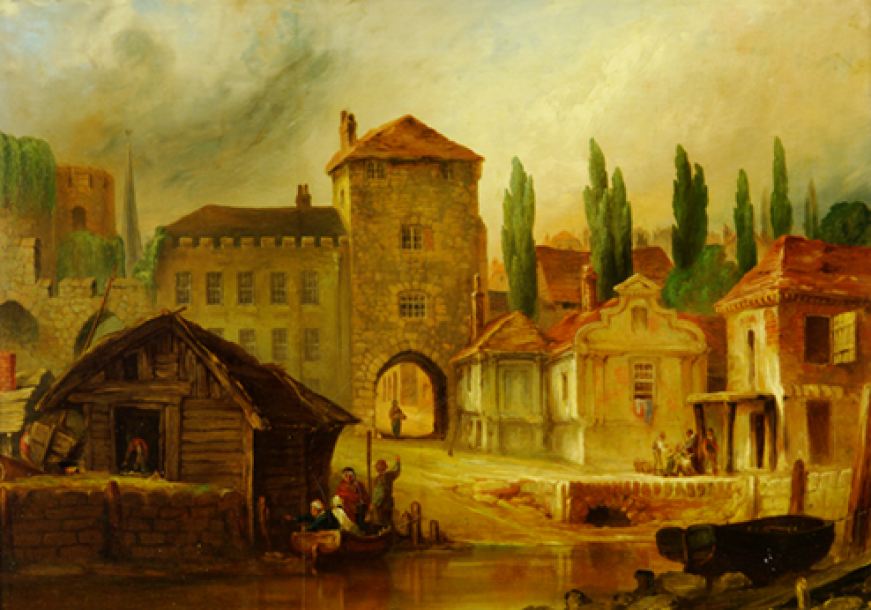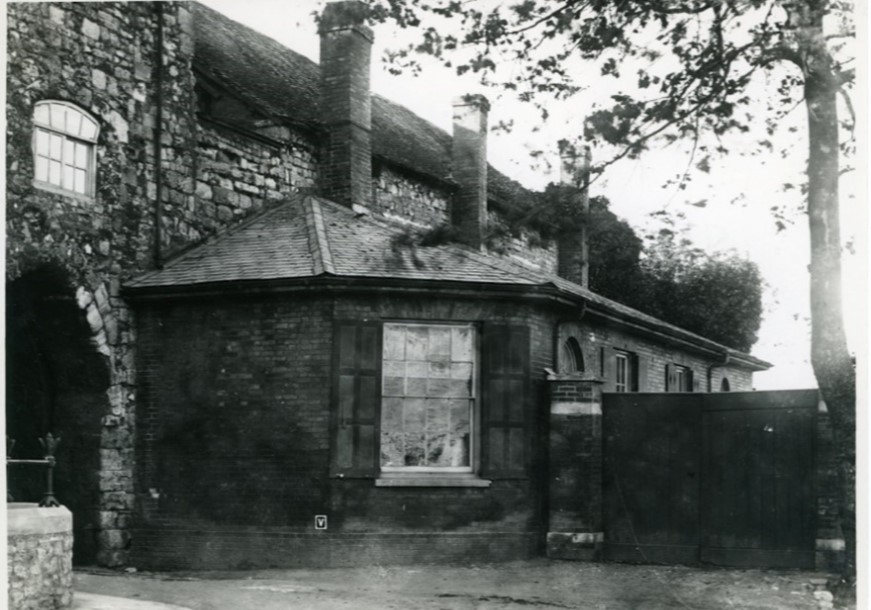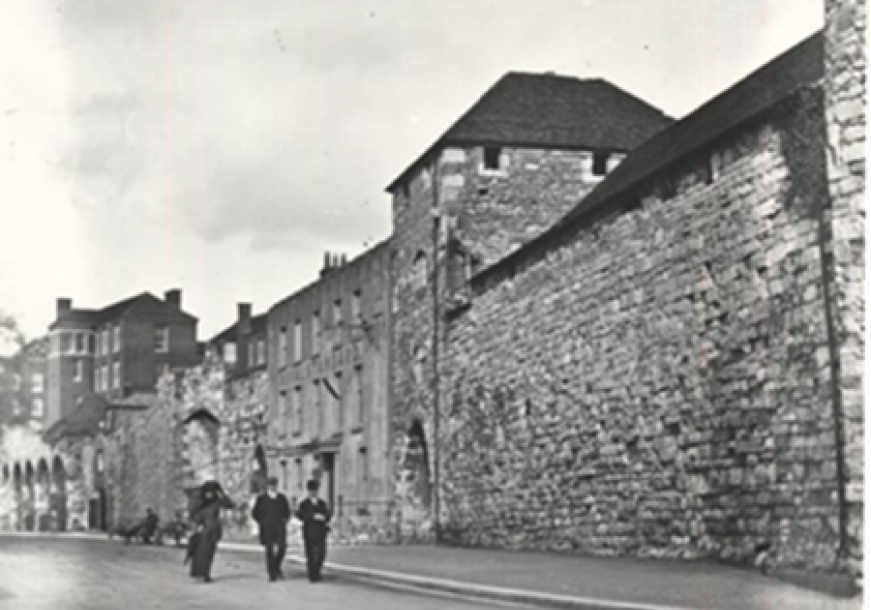Town Walls
March 2024 update
The most heavily eroded greensand stone blocks in four of the arches in the Arcades have been replaced with new Shaftesbury Green Sandstone blocks. This is the closest match that we were able to find to the original Upper Greensand stone from the Isle of Wight, which is no longer available.
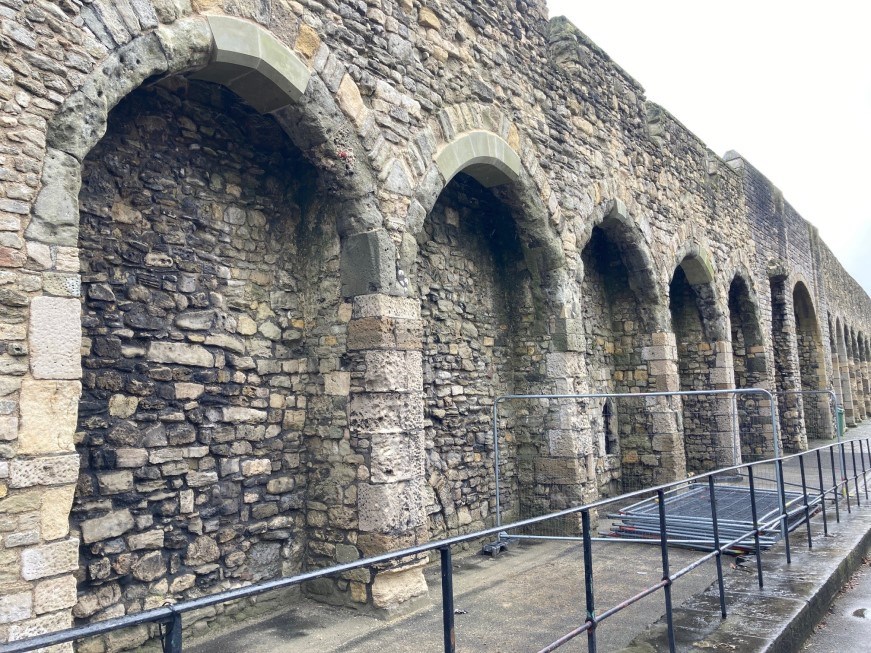
Hidden from view, except to those using the Pig-in-the-Wall carpark, is a long length of Town Wall that was in urgent need of repair. Over four tons of lime mortar were used to fill voids behind the face and repoint the wall.
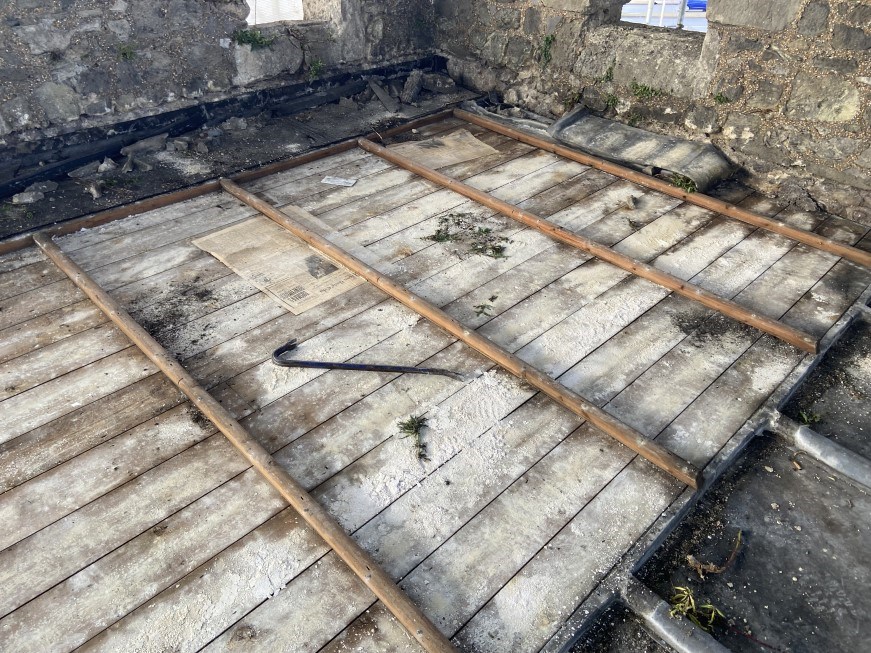
The roof of the West Gate is now watertight. When the contractors lifted the old lead sheeting, they found a small lead plaque and a copy of the Southern Daily Echo dated 1937 underneath. This is the only evidence we have for when the roof was last repaired. The plaque says that the lead was laid by F Pitcher, Plumber. We now know that he worked for the Borough of Southampton, lived in Freemantle and still has relatives in the area.
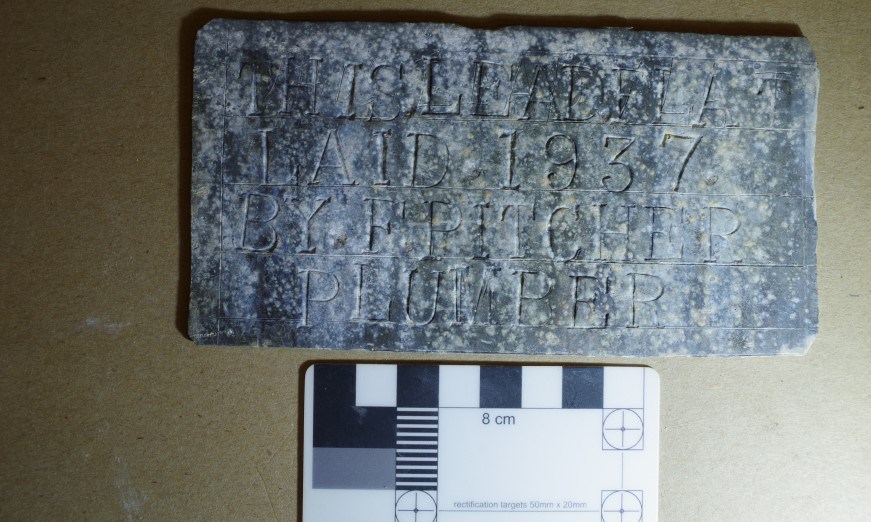
October 2023 update
The stone steps built in 1853, leading down the Town Walls from Albion Place to Western Esplanade, known as Forty Steps, have had a complete overhaul. Many of the worn stone treads have been replaced and the metal handrail repaired, reset and repainted.
The Arcades have been thoroughly cleaned and surveyed in detail so that new stone can be ordered to replace some of the greensand arches that are eroding badly. The original stone was quarried on the Isle of Wight. As this source is no longer available, the new stone will be Shaftesbury Green Sandstone. This is the closest match that we can find.
Meanwhile, work has started on the east face of the Western Town Wall that is inside the car park next to the Pig-in-the-Wall, at the same time as scaffolding is being erected around the Westgate. This will allow the contractors to start repairing the roof before the worst of the winter weather begins.
August 2023 update
As the repairs to Forty Steps are completed and the railings replaced, our contractors are moving on to check and repair one of the most interesting sections of the western town walls – the Arcades.
This section includes windows and doors to wealthy medieval merchants’ houses that were blocked up by order of the King after Southampton was attacked by French and Genoese soldiers in 1338. Gun ports for cannon were set in the blocked doorways and the arcades were built up against the houses around 1380 to add an extra line of defence. This was once one of the busiest parts of the medieval port and was still part of Southampton’s shoreline until the 1920s when land was reclaimed to build the western docks.
December 2022 update
The repairs to the Town Wall next to the Westgate are now complete! We removed most of the cement mortar and replaced it with a more porous and traditional lime mortar which will allow the wall to dry out without causing more damage to the stone.

Town Wall after the repair work was completed.
This is just one of many conservation projects taking place throughout the city.
October 2022 update
The repairs to the Town Walls are well underway!
Many stones in this stretch of the wall have deteriorated in recent years. New stone has arrived from Dorset which the masons have used to replace them.
The most badly affected area of the Town Wall was repaired using a traditional hot lime mix and the eroded stone has been replaced with new material.
When the Town Wall was first built in the 14th century most of the stone came from quarries on the Isle of Wight. These quarries were worked out long ago so we have used Purbeck Inland Freestone, the closest geological match available to us today.
September 2022 update
We started to repair this section of the town walls in September 2022. It needs repointing and a significant number of the stones are crumbling away. Some of this damage has been caused by the use of hard, cement mortar in the past.
We will remove most of the cement mortar and replace it with a more porous lime mortar that will allow the wall to dry out without causing more damage to the stone. Most of the stone used in medieval Southampton was from the Isle of Wight or Northern France. Some types are no longer available, but similar stone can be sourced from Dorset and other quarries in France. We will replace the most heavily eroded stone with the closest match we can find.
The wall was built to protect the south-west corner of the town after the French Raid of 1338. It was built over the top of wealthy merchants’ houses and the plots behind the new wall became gardens. In 1760, Westgate House was built along the line of the wall to the south with gardens either side. Its lodge was built up against the stretch of wall being repaired. Both the house and the lodge were demolished by 1900 to make way for a new road along the outside of the walls – Western Esplanade.
Westgate Hall is on the other side of the wall. This timber-framed building once stood in St Michael’s Square and was moved to this location in 1634. It has been used as a warehouse, banqueting hall and events venue. Today, it is mainly used for weddings. Read more about the history of Westgate Hall.

